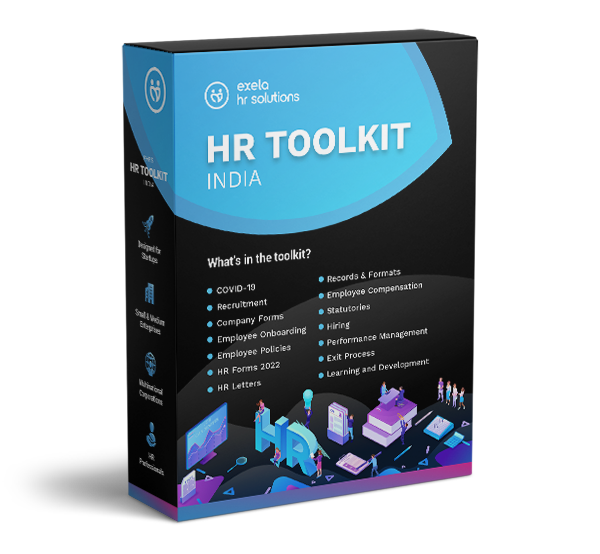
Recruitment stands as the primary distinguishing factor in establishing an organization ready for scalable growth. Securing highly skilled candidates, particularly in the current competitive and geographically dispersed job landscape, poses a significant challenge. Nonetheless, there are strategies that can augment your team's endeavors, resulting in a more effective and seamless recruitment journey.
Your employees are the lifeblood of your organization, the driving force behind your vision, and the embodiment of your company's values. Thus, the recruitment and retention of top talent is paramount.
Recruitment is the foundation upon which business success is built. However, for many organizations, the journey from identifying a need to welcoming a new employee onboard can be a labyrinth of complexity, time consumption, and uncertainty. If you're one of the many businesses struggling with recruitment practices that seem convoluted and arduous, this blog is tailored to you.
Dive in below to learn more about building effective recruitment strategies that will lead to organizational success.
Understanding Your Talent Needs
The first and fundamental step in building effective recruitment strategies for your business success is to have a clear understanding of your talent needs. This phase involves recognizing the specific skills, qualifications, and cultural attributes required to thrive within your organization. Here's a concise breakdown of key aspects:
-
Identifying Skill Gaps:
-
Begin by assessing your current workforce and identifying skill gaps. What expertise is lacking, and where do you need to bolster your capabilities?
-
Consider the skills necessary to meet your company's immediate and long-term goals.
-
-
Defining Roles and Responsibilities Clearly:
-
Each position in your organization should have a well-defined set of roles and responsibilities.
-
Clarity in job descriptions ensures that candidates know what is expected of them and can self-select based on their qualifications and aspirations.
-
-
Creating Detailed Job Descriptions and Person Specifications:
-
Craft detailed job descriptions that outline the qualifications, skills, and experience required for the role.
-
Person specifications should articulate the qualities and attributes that align with your company culture and values.
-
-
Emphasizing Cultural Fit:
-
Recognize that hiring is not just about skills; it's also about culture. Assess what kind of people thrive in your organization.
-
Consider how potential hires will contribute to and align with your company's culture and values.
-
How to Build Effective Recruitment Strategies for Business Success
-
Leveraging Technology for Recruitment
In the digital age, technology is a powerful ally in streamlining and enhancing your recruitment process. Here's a brief look at how technology can be harnessed to optimize recruitment:
-
The Role of Applicant Tracking Systems (ATS):
-
ATS software automates the recruitment process, from posting job openings to managing candidate data and communication.
-
It simplifies resume screening, interview scheduling, and applicant tracking, saving time and reducing manual effort.
-
-
Utilizing Job Boards and Online Platforms:
-
Online job boards and platforms are invaluable for reaching a wide audience of potential candidates.
-
Posting job listings on reputable websites can increase visibility and attract a diverse pool of applicants.
-
-
The Benefits of Social Media and Professional Networking:
-
Social media platforms and professional networks like LinkedIn offer new avenues for recruitment.
-
They enable you to connect with passive job seekers and build relationships with potential candidates.
-
-
Implementing Video Interviews and Virtual Assessments:
-
Video interviews and virtual assessments are becoming commonplace, especially for remote roles.
-
They save time and resources, allowing you to evaluate candidates' skills and suitability efficiently.
-
-
-
Effective Employer Branding
Your employer brand is the perception potential candidates have of your organization as an employer. A strong employer brand is essential for attracting top talent. Here's a brief overview of effective employer branding:
-
The Impact of a Strong Employer Brand:
-
A compelling employer brand can make your organization stand out and attract the best candidates.
-
It communicates what it's like to work for your company and why it's a great place to build a career.
-
-
Showcasing Company Culture and Values:
-
Highlight your company's culture and values in your branding efforts.
-
Share stories and experiences that illustrate the positive aspects of your workplace.
-
-
Employee Testimonials and Case Studies:
-
Encourage current employees to share their experiences and insights.
-
Use employee testimonials and case studies to offer authentic perspectives on what it's like to work for your organization.
-
-
Leveraging Social Media for Branding:
-
Utilize social media platforms to communicate your employer brand.
-
Share posts, videos, and content that reflect your company culture and values.
-
-
Also Read: Stay Ahead of the Curve: HR Payroll Software Trends for 2024
-
Streamlining the Selection Process
Streamlining the selection process is vital for efficient recruitment. Here's a concise look at how to make your selection process more efficient:
-
Creating a Structured Interview and Assessment Process:
-
Develop a clear and structured interview process that defines the steps and criteria for evaluating candidates.
-
This minimizes subjectivity and ensures consistency in candidate assessment.
-
-
The Importance of Pre-Employment Testing:
-
Implement pre-employment assessments to evaluate specific skills and abilities.
-
These tests help ensure candidates have the competencies needed for the role.
-
-
Panel Interviews and Diverse Perspectives:
-
Consider using panel interviews involving multiple interviewers.
-
Diverse perspectives reduce bias and provide a more comprehensive assessment of candidates.
-
-
Reference Checks and Background Screening:
-
Verify candidate information through reference checks and background screening.
-
This helps ensure the accuracy of claims on resumes and assesses candidates' suitability.
-
-
-
Engaging and Retaining New Hires
Engaging and retaining new hires is vital for long-term business success. Here's a brief overview of this crucial aspect:
-
Onboarding and Orientation Programs:
-
Effective onboarding and orientation programs help new hires acclimate to their roles and the company culture.
-
It sets the tone for their journey, making them feel valued and prepared.
-
-
Mentoring and Support Systems for New Employees:
-
Mentorship programs connect new engagements with experienced employees.
-
This provides guidance, support, and a sense of belonging from day one.
-
-
Ongoing Training and Development Opportunities:
-
Continuous learning and development opportunities show new hires a path for growth within the organization.
-
It keeps them engaged and motivated to contribute to your business's success.
-
-
Feedback Mechanisms and Performance Reviews:
-
Regular feedback and performance reviews allow for open communication.
-
Employees feel heard and supported, which boosts their engagement and commitment.
-
-
-
Data-Driven Decision-Making
Data-driven decision-making is essential for effective recruitment. Here's a concise overview of its significance:
-
Using Data and Analytics for Recruitment Insights:
-
Collect and analyze data to gain insights into your recruitment process.
-
This data can help you identify areas for improvement and optimize your strategies.
-
-
Monitoring Recruitment Key Performance Indicators (KPIs):
-
Key performance indicators, such as time-to-fill, cost-per-hire, and source effectiveness, provide valuable metrics for evaluating your recruitment efforts.
-
Monitoring these KPIs allows you to make data-driven adjustments.
-
-
Continual Improvement Based on Data Feedback:
-
Regularly review and act on the insights gained from your recruitment data.
-
Adjust your strategies to align with the findings, ultimately making your recruitment process more efficient and effective.
-
-
-
Building a Talent Pipeline
Building a talent pipeline is a forward-thinking approach to recruitment. Here's a concise overview:
-
Proactive Talent Sourcing and Relationship Building:
-
Actively seek out potential candidates, even when you don't have immediate openings.
-
Build relationships with talent who may be a fit for future roles.
-
-
Networking and Industry Events:
-
Attend industrial events and conferences to connect with professionals in your field.
-
Networking helps you identify top talent and cultivate relationships with potential hires.
-
-
Internship and Apprenticeship Programs:
-
Develop internship and apprenticeship programs to introduce new talent to your organization.
-
This allows you to assess candidates and provide training for future roles.
-
-
Encouraging Employee Referrals:
-
Tap into your current employees' networks by encouraging and incentivizing employee referrals.
-
Your team can help identify top talent and bring them into your talent pipeline.
-
-
Conclusion
Building effective recruitment strategies is the key to business success. From understanding your talent needs to embracing technology, employer branding, streamlining the selection process, engaging and retaining new hires, data-driven decision-making, and building a talent pipeline, these strategies form the pillars of efficient and productive recruitment.
Exela HR Solutions serves as a valuable partner in your quest to recruit the best talent for your organizational needs. With our expertise, organizations can tap into a wealth of resources, experience, and cutting-edge tools to streamline recruitment processes.
Our comprehensive solutions enhance every aspect of your recruitment, from applicant tracking to data-driven insights, allowing you to build a robust talent pipeline and engage and retain top talent.
Speak with an expert today.
DISCLAIMER: The information on this site is for general information purposes only and is not intended to serve as legal advice. Laws governing the subject matter may change quickly, and Exela cannot guarantee that all the information on this site is current or correct. Should you have specific legal questions about any of the information on this site, you should consult with a licensed attorney in your area.





